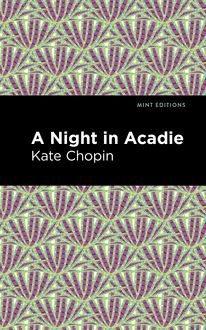-
 Univers
Univers
-
 Ebooks
Ebooks
-
 Livres audio
Livres audio
-
 Presse
Presse
-
 Podcasts
Podcasts
-
 BD
BD
-
 Documents
Documents
-
- Cours
- Révisions
- Ressources pédagogiques
- Sciences de l’éducation
- Manuels scolaires
- Langues
- Travaux de classe
- Annales de BEP
- Etudes supérieures
- Maternelle et primaire
- Fiches de lecture
- Orientation scolaire
- Méthodologie
- Corrigés de devoir
- Annales d’examens et concours
- Annales du bac
- Annales du brevet
- Rapports de stage
La lecture à portée de main
Vous pourrez modifier la taille du texte de cet ouvrage
Découvre YouScribe en t'inscrivant gratuitement
Je m'inscrisDécouvre YouScribe en t'inscrivant gratuitement
Je m'inscrisEn savoir plus
Vous pourrez modifier la taille du texte de cet ouvrage
En savoir plus

Description
The Piazza Tales (1856) is a collection of short stories by American writer Herman Melville. Before publication, five of its six stories appeared in Putnam’s Monthly during a period of productivity with which Melville sought to achieve popular success as a writer of literary fiction. After the failure of his novels Moby-Dick (1851) and Pierre: or, The Ambiguities (1852), Melville struggled to find a publisher who would accept his work, and contemporary reviews of The Piazza Tales were negative to lukewarm at best. When Melville’s work was reappraised in the 1920s, scholars recognized these stories as not only well-composed, but keenly focused on the dominant ethical and sociopolitical issues of their day.
In “The Piazza,” a man buys an old farmhouse with a view on the nearby mountains. Despite his fortune, he spends his days longing for more, wishing his home had its own piazza so he could share the beauty of the surrounding landscape with guests. “Bartleby, the Scrivener” is a story set at an anonymous law office on Wall Street where a mysterious clerk suddenly refuses to do his work. Amused at first, the lawyer who narrates the story is eventually overcome with frustration and struggles to rid himself of the intractable Bartleby. In “Benito Cereno,” a merchant ship captain sailing around the coast of Chile chances on a slave ship in distress. Hoping to assist its captain and crew, he boards their ship, unwittingly stumbling on a dangerous and volatile situation. The Piazza Tales is a collection of some of American literary icon Herman Melville’s most celebrated stories.
With a beautifully designed cover and professionally typeset manuscript, this edition of Herman Melville’s The Piazza Tales is a classic of American literature reimagined for modern readers.
Sujets
Informations
| Publié par | Mint Editions |
| Date de parution | 12 janvier 2021 |
| Nombre de lectures | 0 |
| EAN13 | 9781513275024 |
| Langue | English |
| Poids de l'ouvrage | 1 Mo |
Informations légales : prix de location à la page 0,0500€. Cette information est donnée uniquement à titre indicatif conformément à la législation en vigueur.
Extrait
The Piazza Tales
Herman Melville
The Piazza Tales was first published in 1856.
This edition published by Mint Editions 2021.
ISBN 9781513270029 | E-ISBN 9781513275024
Published by Mint Editions®
minteditionbooks .com
Publishing Director: Jennifer Newens
Design & Production: Rachel Lopez Metzger
Typesetting: Westchester Publishing Services
C ONTENTS T HE P IAZZA B ARTLEBY B ENITO C ERENO T HE L IGHTNING -R OD M AN T HE E NCANTADAS ; OR , E NCHANTED I SLES T HE B ELL -T OWER
T HE P IAZZA
“With fairest flowers,
Whilst summer lasts, and I live here, Fidele—”
When I removed into the country, it was to occupy an old-fashioned farm-house, which had no piazza—a deficiency the more regretted, because not only did I like piazzas, as somehow combining the coziness of in-doors with the freedom of out-doors, and it is so pleasant to inspect your thermometer there, but the country round about was such a picture, that in berry time no boy climbs hill or crosses vale without coming upon easels planted in every nook, and sun-burnt painters painting there. A very paradise of painters. The circle of the stars cut by the circle of the mountains. At least, so looks it from the house; though, once upon the mountains, no circle of them can you see. Had the site been chosen five rods off, this charmed ring would not have been.
The house is old. Seventy years since, from the heart of the Hearth Stone Hills, they quarried the Kaaba, or Holy Stone, to which, each Thanksgiving, the social pilgrims used to come. So long ago, that, in digging for the foundation, the workmen used both spade and axe, fighting the Troglodytes of those subterranean parts—sturdy roots of a sturdy wood, encamped upon what is now a long land-slide of sleeping meadow, sloping away off from my poppy-bed. Of that knit wood, but one survivor stands—an elm, lonely through steadfastness.
Whoever built the house, he builded better than he knew; or else Orion in the zenith flashed down his Damocles’ sword to him some starry night, and said, “Build there.” For how, otherwise, could it have entered the builder’s mind, that, upon the clearing being made, such a purple prospect would be his?—nothing less than Greylock, with all his hills about him, like Charlemagne among his peers.
Now, for a house, so situated in such a country, to have no piazza for the convenience of those who might desire to feast upon the view, and take their time and ease about it, seemed as much of an omission as if a picture-gallery should have no bench; for what but picture-galleries are the marble halls of these same limestone hills?—galleries hung, month after month anew, with pictures ever fading into pictures ever fresh. And beauty is like piety—you cannot run and read it; tranquillity and constancy, with, now-a-days, an easy chair, are needed. For though, of old, when reverence was in vogue, and indolence was not, the devotees of Nature, doubtless, used to stand and adore—just as, in the cathedrals of those ages, the worshipers of a higher Power did—yet, in these times of failing faith and feeble knees, we have the piazza and the pew.
During the first year of my residence, the more leisurely to witness the coronation of Charlemagne (weather permitting, they crown him every sunrise and sunset), I chose me, on the hill-side bank near by, a royal lounge of turf—a green velvet lounge, with long, moss-padded back; while at the head, strangely enough, there grew (but, I suppose, for heraldry) three tufts of blue violets in a field-argent of wild strawberries; and a trellis, with honeysuckle, I set for canopy. Very majestical lounge, indeed. So much so, that here, as with the reclining majesty of Denmark in his orchard, a sly ear-ache invaded me. But, if damps abound at times in Westminster Abbey, because it is so old, why not within this monastery of mountains, which is older?
A piazza must be had.
The house was wide—my fortune narrow; so that, to build a panoramic piazza, one round and round, it could not be—although, indeed, considering the matter by rule and square, the carpenters, in the kindest way, were anxious to gratify my furthest wishes, at I’ve forgotten how much a foot.
Upon but one of the four sides would prudence grant me what I wanted. Now, which side?
To the east, that long camp of the Hearth Stone Hills, fading far away towards Quito; and every fall, a small white flake of something peering suddenly, of a coolish morning, from the topmost cliff—the season’s new-dropped lamb, its earliest fleece; and then the Christmas dawn, draping those dim highlands with red-barred plaids and tartans—goodly sight from your piazza, that. Goodly sight; but, to the north is Charlemagne—can’t have the Hearth Stone Hills with Charlemagne.
Well, the south side. Apple-trees are there. Pleasant, of a balmy morning, in the month of May, to sit and see that orchard, white-budded, as for a bridal; and, in October, one green arsenal yard; such piles of ruddy shot. Very fine, I grant; but, to the north is Charlemagne.
The west side, look. An upland pasture, alleying away into a maple wood at top. Sweet, in opening spring, to trace upon the hill-side, otherwise gray and bare—to trace, I say, the oldest paths by their streaks of earliest green. Sweet, indeed, I can’t deny; but, to the north is Charlemagne.
So Charlemagne, he carried it. It was not long after 1848; and, somehow, about that time, all round the world, these kings, they had the casting vote, and voted for themselves.
No sooner was ground broken, than all the neighborhood, neighbor Dives, in particular, broke, too—into a laugh. Piazza to the north! Winter piazza! Wants, of winter midnights, to watch the Aurora Borealis, I suppose; hope he’s laid in good store of Polar muffs and mittens.
That was in the lion month of March. Not forgotten are the blue noses of the carpenters, and how they scouted at the greenness of the cit, who would build his sole piazza to the north. But March don’t last forever; patience, and August comes. And then, in the cool elysium of my northern bower, I, Lazarus in Abraham’s bosom, cast down the hill a pitying glance on poor old Dives, tormented in the purgatory of his piazza to the south.
But, even in December, this northern piazza does not repel—nipping cold and gusty though it be, and the north wind, like any miller, bolting by the snow, in finest flour—for then, once more, with frosted beard, I pace the sleety deck, weathering Cape Horn.
In summer, too, Canute-like, sitting here, one is often reminded of the sea. For not only do long ground-swells roll the slanting grain, and little wavelets of the grass ripple over upon the low piazza, as their beach, and the blown down of dandelions is wafted like the spray, and the purple of the mountains is just the purple of the billows, and a still August noon broods upon the deep meadows, as a calm upon the Line; but the vastness and the lonesomeness are so oceanic, and the silence and the sameness, too, that the first peep of a strange house, rising beyond the trees, is for all the world like spying, on the Barbary coast, an unknown sail.
And this recalls my inland voyage to fairy-land. A true voyage; but, take it all in all, interesting as if invented.
From the piazza, some uncertain object I had caught, mysteriously snugged away, to all appearance, in a sort of purpled breast-pocket, high up in a hopper-like hollow, or sunken angle, among the northwestern mountains—yet, whether, really, it was on a mountain-side, or a mountain-top, could not be determined; because, though, viewed from favorable points, a blue summit, peering up away behind the rest, will, as it were, talk to you over their heads, and plainly tell you, that, though he (the blue summit) seems among them, he is not of them (God forbid!), and, indeed, would have you know that he considers himself—as, to say truth, he has good right—by several cubits their superior, nevertheless, certain ranges, here and there double-filed, as in platoons, so shoulder and follow up upon one another, with their irregular shapes and heights, that, from the piazza, a nigher and lower mountain will, in most states of the atmosphere, effacingly shade itself away into a higher and further one; that an object, bleak on the former’s crest, will, for all that, appear nested in the latter’s flank. These mountains, somehow, they play at hide-and-seek, and all before one’s eyes.
But, be that as it may, the spot in question was, at all events, so situated as to be only visible, and then but vaguely, under certain witching conditions of light and shadow.
Indeed, for a year or more, I knew not there was such a spot, and might, perhaps, have never known, had it not been for a wizard afternoon in autumn—late in autumn—a mad poet’s afternoon; when the turned maple woods in the broad basin below me, having lost their first vermilion tint, dully smoked, like smouldering towns, when flames expire upon their prey; and rumor had it, that this smokiness in the general air was not all Indian summer—which was not used to be so sick a thing, however mild—but, in great part, was blown from far-off forests, for weeks on fire, in Vermont; so that no wonder the sky was ominous as Hecate’s cauldron—and two sportsmen, crossing a red stubble buck-wheat field, seemed guilty Macbeth and foreboding Banquo; and the hermit-sun, hutted in an Adullum cave, well towards the south, according to his season, did little else but, by indirect reflection of narrow rays shot down a Simplon pass among the clouds, just steadily paint one small, round, strawberry mole upon the wan cheek of northwestern hills. Signal as a candle. One spot of radiance, where all else was shade.
Fairies there, thought I; some haunted ring where fairies dance.
Time passed; and the following May, after a gentle shower upon the mountains—a little shower islanded in misty seas of sunshine; such a distant shower—and sometimes two, and three, and four of
-
 Univers
Univers
-
 Ebooks
Ebooks
-
 Livres audio
Livres audio
-
 Presse
Presse
-
 Podcasts
Podcasts
-
 BD
BD
-
 Documents
Documents
-
Jeunesse
-
Littérature
-
Ressources professionnelles
-
Santé et bien-être
-
Savoirs
-
Education
-
Loisirs et hobbies
-
Art, musique et cinéma
-
Actualité et débat de société
-
Jeunesse
-
Littérature
-
Ressources professionnelles
-
Santé et bien-être
-
Savoirs
-
Education
-
Loisirs et hobbies
-
Art, musique et cinéma
-
Actualité et débat de société
-
Actualités
-
Lifestyle
-
Presse jeunesse
-
Presse professionnelle
-
Pratique
-
Presse sportive
-
Presse internationale
-
Culture & Médias
-
Action et Aventures
-
Science-fiction et Fantasy
-
Société
-
Jeunesse
-
Littérature
-
Ressources professionnelles
-
Santé et bien-être
-
Savoirs
-
Education
-
Loisirs et hobbies
-
Art, musique et cinéma
-
Actualité et débat de société
- Cours
- Révisions
- Ressources pédagogiques
- Sciences de l’éducation
- Manuels scolaires
- Langues
- Travaux de classe
- Annales de BEP
- Etudes supérieures
- Maternelle et primaire
- Fiches de lecture
- Orientation scolaire
- Méthodologie
- Corrigés de devoir
- Annales d’examens et concours
- Annales du bac
- Annales du brevet
- Rapports de stage



















